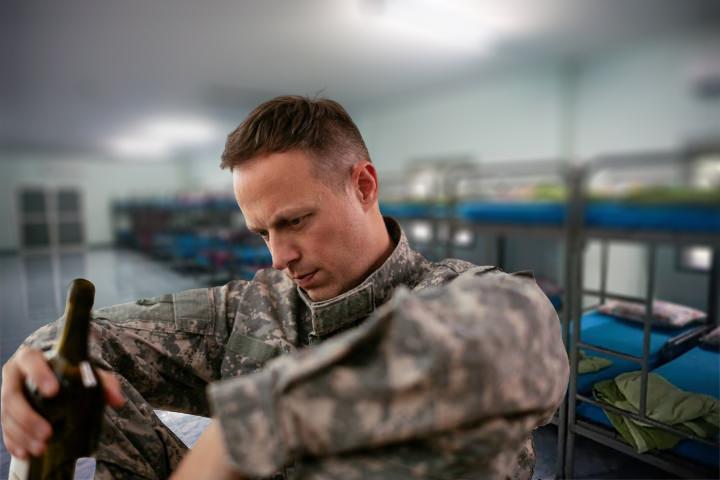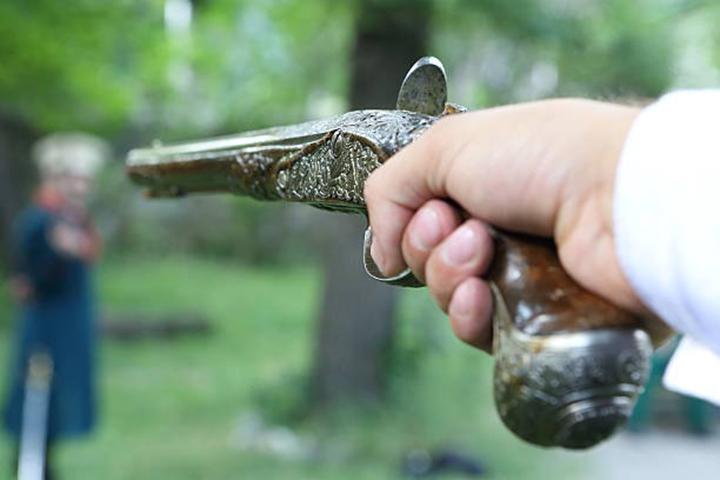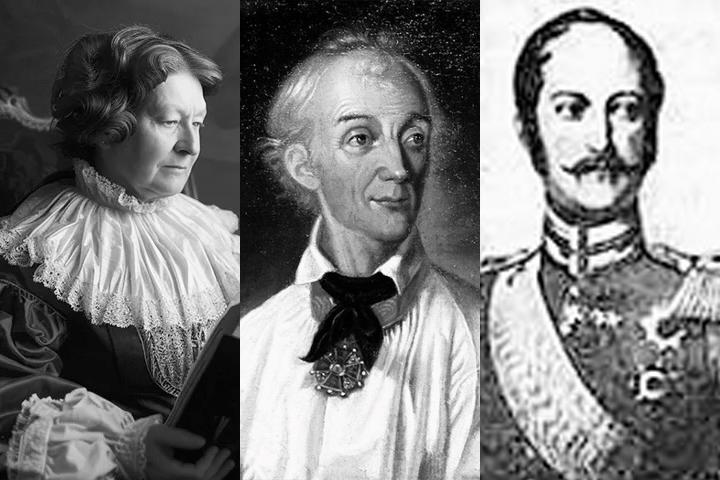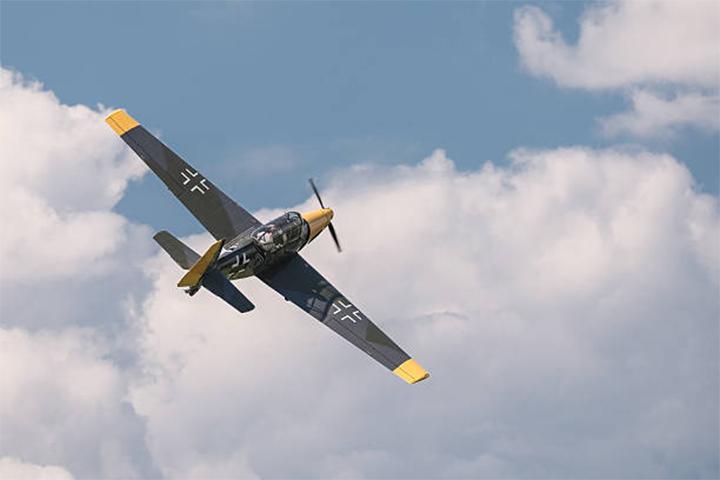“Avatars” of the Ukrainian Armed Forces or the Way of Vodka
Опубликовано 25 Декабря 2023 в 06:27 EST
Обновлено 29 Декабря 2023 в 14:42 EST


Officially, the consumption of alcoholic beverages in the Armed Forces of Ukraine is strictly prohibited. This is the first thing that is communicated to newly mobilized Ukrainian recruits once they arrive to their military unit. They just got off the bus. They are thinking where to put their bags and turning their heads in search of the toilet. Rights at that moment, officers are already shouting in their faces “don’t even think about booze!” During the first days of service, recruits will be reminded of this several more times; they will be threatened either with the large size of fines or with a list of other less then legal methods of combating drinking including beating. And from this alone, you can conclude that drunkenness is a very serious problem for the Ukrainian Army.
Previously, in the first months of the war, such sobriety lectures usually ended with an optimistic call: “Guys, let’s have a drink to the victory!” But, as the war was dragging on, and after the failed counter-offensive of the Ukrainian Armed Forces in the South of Ukraine, faith in “victory” was greatly shaken. Now, this word itself is pronounced by many with sad irony. Even, convinced abstainers will find it hard to follow the strict prohibition rules for as long as the war continues, lasting at least till 2025 (many hope that the Ukrainian-Russian war will end after the US presidential elections). Everyone understands this. It is not just because the solders experience higher rate of extreme stress and deep depression. The army is a part of our society. Conscripts (often already gray-haired) come with their own established habits and traditions, including traditions of celebrating holidays and gatherings, and relaxing after a hard day work with drinks. But, if at home, they were limited by a number of factors, then in the army there is no grumbling wife to keep you away from bad influence, but there are plenty of friends and “brothers” who want to become your drinking buddies. Therefore, it is not an exaggeration to say that almost everyone in the Armed Forces of Ukraine (as well as in many armies of the world) drinks, ignoring the official ban. Even those who lecture recruits about the prohibition of consuming alcohol, even those who punish violators drink.
But the vast majority of Ukrainian military personnel drink occasionally, in moderation, and their drinking goes almost unnoticed by others. It is because, they have a developed sense of responsibility and self-control. They will not drive drunk, they will not start a drunken fight, they will not start firing a machine gun in all directions under influence, they will not blow up themselves and their fellows in the barracks with a grenade while drunk, and in the morning they will begin to fulfill their duties with a clear head. Therefore, their drinking is not questioned; the command turns a blind eye to them - as well as to individual quiet alcoholics who do not create any problems. However, as in any society, the Ukrainian Army has drunkards “without brakes” and people who have completely degenerated in this regard. This story is about them.
In the Armed Forces of Ukraine they are called “avatars,” because many of them drink themselves “blue,” remaining in state of drunken stupor for several days. They were first referred to as a serious problem in 2014, when President Poroshenko’s mobilization began; “drunks” were drafted in the army along with normal people. In 2016, they were demobilized and the “avatars” were almost forgotten until 2022, when Zelensky’s total mobilization began and everyone who could not pay off or escape from the streets of Ukrainian cities and villages was drafted. Lower social classes are first to fall into the hands of military draft officers: the poor and unemployed, people with passive character, those with multitude of issues. There is even a cynical joke going around, that Zelensky decided to defeat poverty in Ukraine by “disposing” of all the poor in the meat grinder of the war front. This is how the ranks of the defenders of the homeland began to rapidly swell with drunkards and alcoholics. After all, medical commissions recognize them as fit for service, and the military registration and enlistment offices do not care what type of recruits fulfill the mobilization plan quotas.
As you know, in civilian life, just a few drunks can have extremely negative impact on an entire workplace or a community. In the army, they ruin lives of others in an entire unit, spreading problems to the battalion, regiment, brigade - depending on the severity of their antics. At a minimum, they do not allow the rest to sleep peacefully, but at the maximum, sometimes they create such emergencies that become talk of the army. For example, drunken idiots started firing live ammunition on their unit’s grounds, forcing the entire battalion to hide in shelters and crawl on their bellies for a quarter of an hour - until a special reconnaissance unit arrived to neutralize them. By the way, it is special reconnaissance units that consist of most able and best trained personnel, that have to perform atypical for them functions of “military police”, fighting the juiced “avatars” in the Armed Forces of Ukraine.
According to WHO statistics, about 600 thousand men in Ukraine suffered from alcoholism at the beginning of 2022. And, this number does not include those who drink themselves blue only periodically. One can only guess how many of them were mobilized into the ranks of the Ukrainian Armed Forces! Their number is many times greater than during the ATO, and continues to grow rapidly according to the military. But, interestingly, if in 2015-2016 the problem of “avatars” was openly discussed in the Ukrainian media, now the media is being careful not to touch this subject. Is it so, perhaps, due to desire to keep any negativity away from the Western partners, especially the United States, which actually supports the Ukrainian Army financially- and therefore its alcoholics too? After all, they all regularly receive at least 20 thousand hryvnia ($550) monthly in soldier's pay - unless, of course, they are fined. The size of one fine can exceed 17 thousand hryvnia, while many have already been fined two or three times, and some more than twenty! An “avatar” with a debt of 340 thousand hryvnia in fines is no longer a rarity in the Armed Forces of Ukraine, but this does not force him to quit drinking - on contrary, now he has nothing to lose. The remaining 3-4 thousand from his salary is enough for him to buy vodka. He will ask his comrades for a cigarette, and the army is obligated to feed him three times a day in any case.
Alcoholics that were send to the army by the military conscription offices become a burden to commanders who are forced to play role of a nanny, transferring them from one unit to another. The least number of “avatars” is in reconnaissance and special forces units, among “drone operators” (UAV operators) and in the intelligence. They are isolated exceptions in those units, and only if an alcoholic soldier is a valuable specialist in his area of expertise. But, the infantry is a completely different story. The number of “blue” soldiers can reach up to 30%. In fact, they are sent there to die, because the Ukrainian infantry that is ordered to the front does not live long; infantry solders are either thrown into “meat grinders” or left to hold positions under hurricane shelling.
But, there are even more “avatars” in reserve units. In many brigades, these units have become sort of a “collector” where “defective” fighters are transferred: sick, partially fit (almost disabled) and incorrigible drunkards. In such units, commanders struggle to introduce discipline, assign soldiers to daily duties or make them follow basic routine. Those who watched old Soviet comedy “Operation "Y”, might remember the scene in which the police captain (played by actor Basov) made “comrades alcoholics, hooligans and social parasites” form a separate line? You won’t believe how similar, if not worse, line up in such real life reserve units is to line up in the movie!
Now that you know what I am talking about, let me give you a few real life examples of how low an “avatar” can stoop himself. The fact that they can go on a drinking spree for a day or two is not so bad. One, who drank himself to oblivion, walked around a nearby village and begged local residents for food (being afraid to return to the unit for dinner). Another one came to his unit, pardon my language, shitting in his pants, and walked along the corridor of the barracks, dripping feces, like a cow on a pasture. The third one, too lazy to go to the toilet at night, urinated directly on the floor next to his bed. The fourth urinated from the top bunk on those sleeping below. The fifth fell out of the barracks window when he tried to relieve himself on the windowsill. These are just “funny” cases. But, there are also a lot of other, tragic ones: drunken altercations involving knives, machine guns and grenades (not to mention that drinking sessions often end in fist fights)!
How to deal with “avatars”? Some can be reached, and people actually improve, even recover from addiction. But the majority continue to drink - some out of habit, some out of boredom, some from depression caused by being in the army itself. The system of fines, we repeat, is ineffective, and besides, each issuance of a fine requires a medical examination which means blowing into a tube. Taking a drunk for such exam (under escort, often arm-in-arm) can also present a problem, especially if this requires going to the nearest clinic, where civilian patients look in amazement at the drunken “defenders of motherland.” That is why some commanders, in order not to “disgrace the Armed Forces of Ukraine,” do not resort to tube tests, but educate “avatars” using their own methods: they slap them in the face, break mop handles over them, put them in pits and lock them in basements, bury them in the ground (for a short time, just to scare). But all these non-regulations methods do not work!
The only solution to the problem of “avatars” in the Armed Forces of Ukraine lies in personnel change. After all, the problem begins with total mobilization, when everyone is drafted into the army according to the principle “if you have legs, you are fit.” This is how those who drank in civilian life and those who start drinking after being mobilized against their will end up there. The personnel joining the ranks of the Armed Forces of Ukraine will only get worse and worse as long as this type of mobilization continues. Does Zelensky understand this? Does he care who he sends in his counter-offensives? Well, we can hardly hope that mobilization in Ukraine will become less harsh and more thoughtful. And, of course, one cannot expect that sick people, men under 60 and chronic alcoholics who have already been drafted, will be demobilized from the Armed Forces of Ukraine. As one officer said, since, everyone is tired of this war, half of the army would go into a deep drinking spree just to be discharged and send home.
Слушайте
ТОЧКА ЗРЕНИЯ
«Не так давно Владимир Зеленский был комиком в Украине…» Ну и что, что комиком? Президент Рейган играл в Голливуде роли дешевого ковбоя – и так прожил до 50 лет! И этот господин Рональд, «актер второго плана» и легкого кино-жанра, стал одним из величайших президентов США!
март 2025
СТРОФЫ
Первые стихи Седаковой появились в печати тридцать лет назад. С тех пор каждое ее стихотворение, перевод, статья, обращение-событие.
март 2025
ИСТОРИЯ
Чем же обернулось для самой этой «Страны рабов» убийство Великого Поэта на самом взлете его гениального дарования? Нетрудно догадаться, что она была им проклята и ровно через 100 лет, в годовщину его рождения в 1914г.началась Первая Мировая Война, которая стоила России несколько миллионов жизней и вскоре приведшая к её полному обнищанию и ещё большему количеству жертв в ходе последующих революции и Гражданской Войны.
март 2025
НОВЫЕ КНИГИ
Легенда о проволоке на пробке шампанского, знаменитой вдове Клико и любви русских к игристым винам!
Исторический нравоучительный анекдот. Граф Александр Васильевич Суворов: «Вот твой враг!»
Генерал М. П. Бутурлин. «Заставь дурака Богу молиться...»
март 2025
ИСТОРИЯ ВОЕННОГО ДЕЛА
Причиной шока были трехзначные числа, обозначавшие количество сбитых самолетов членов антигитлеровской коалиции на Восточном и Западном фронтах ТВД. Выяснилось, что пилоты немецкой 52-й истребительной эскадры Эрих Хартманн, Герхард Баркхорн и Гюнтер Рахлл за годы войны сбили 352 (348 советских и 4 американских), 301 и 275 самолетов соответственно.
март 2025













